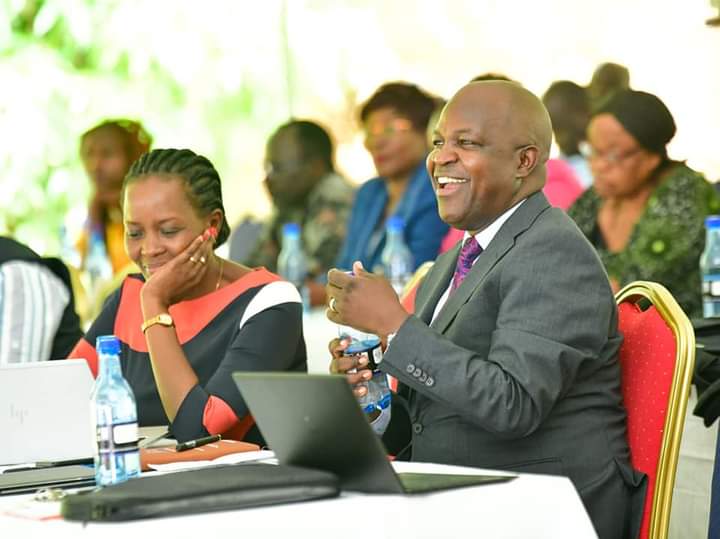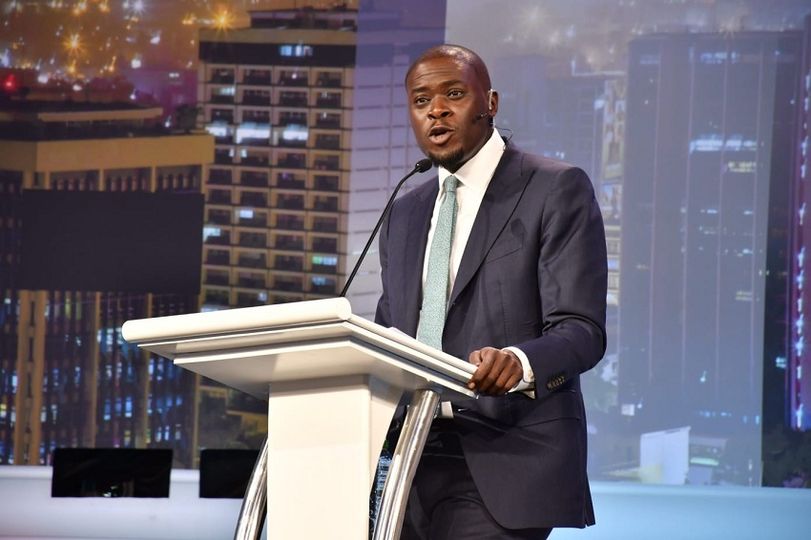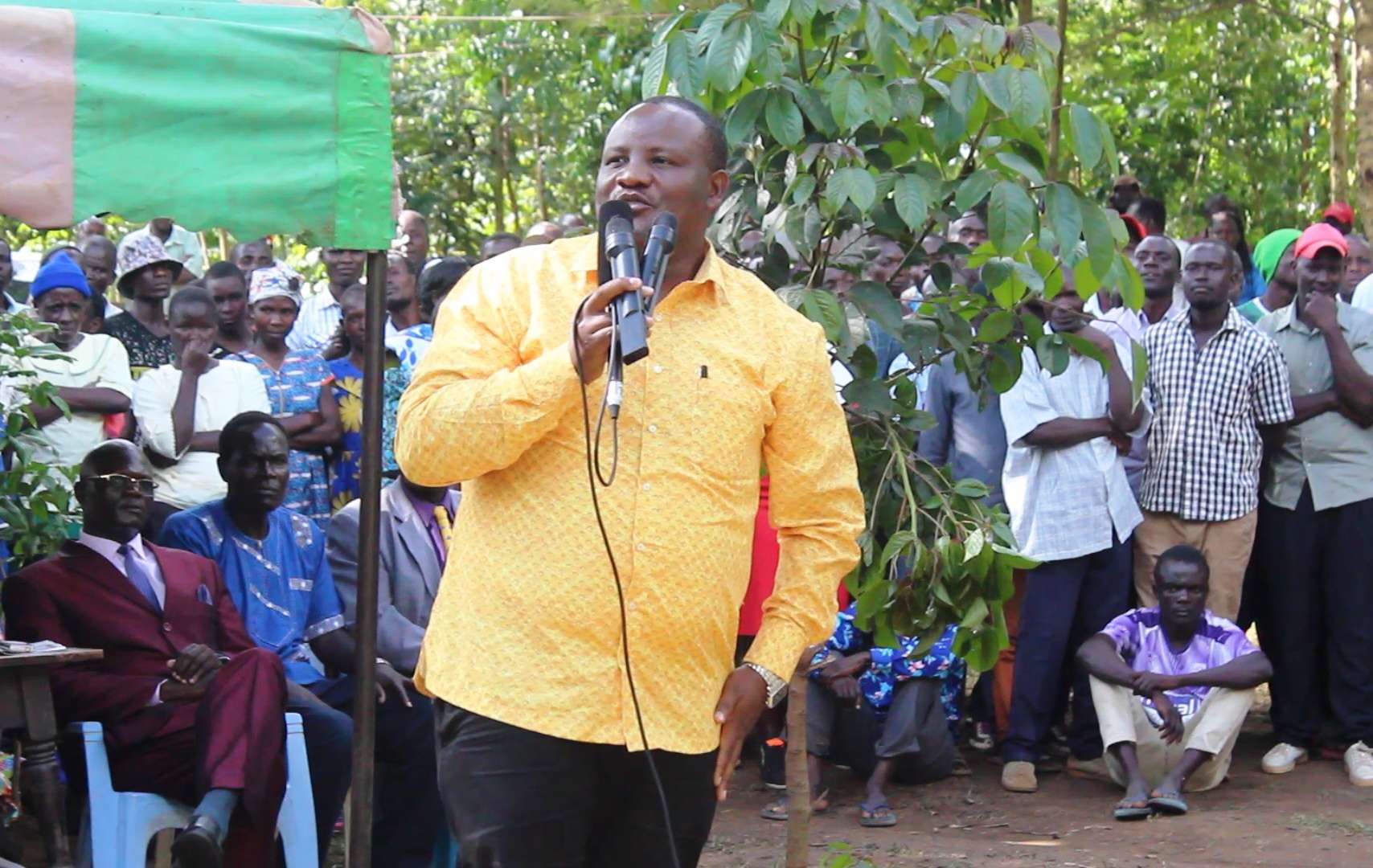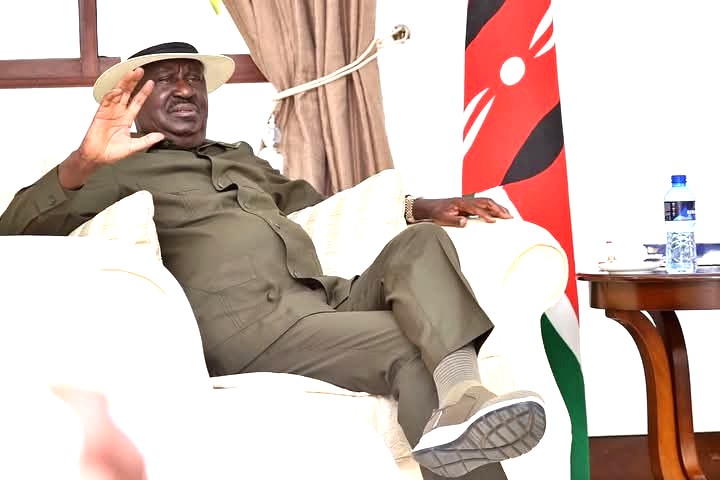By Political Desk
With the 2027 General Election still two years away, Kisumu County has become the epicentre of early political manoeuvring, where rival camps are already jostling for control of the coveted governor’s seat. The looming exit of incumbent Governor Prof. Anyang’ Nyong’o, who is serving his final term, has ignited a high-stakes scramble that is redefining the county’s political landscape.
From high-profile funerals to grassroots fundraisers and party mobilisation drives, Kisumu’s weekends have morphed into full-blown political stages, giving rise to what residents are calling a “premature election fever”. Leading the charge is Deputy Governor Dr Mathews Owili, who has quietly but assertively launched his campaign, positioning himself as the natural successor to Nyong’o.
“The seat of the Governor must be occupied by someone from Nyakach, and he is none other than Dr Mathews Owili,” he declared recently, making no secret of his intentions.
Owili has intensified his activities within Nyakach, his home turf, and extended his reach across all 35 wards, riding on the ongoing ODM party recruitment drive. His strategy, observers note, is clear: build a wide-reaching political network before the primaries.
However, his path is already facing fierce resistance. Nyakach MP Aduma Owuor, once considered a close ally, publicly rebuked Owili at a funeral, accusing him of failing to account for his track record in office. “We made him who he is, and he must first tell us what he has done with the position of Deputy Governor before dreaming of becoming Governor,” Owuor charged.
The fiery exchange marked the beginning of what is shaping up to be a bruising intra-sub-county rivalry that may split Nyakach’s vote and weaken Owili’s early momentum.
But Owili and Owuor are far from alone in this political war of attrition. Kisumu Senator Prof. Tom Ojienda has already thrown his hat into the ring, leveraging his grassroots connections and personal philanthropy to woo the electorate.
“If it wasn’t for the things I do with my own money, I wouldn’t be as popular as I am today in Kisumu,” Ojienda remarked during a recent event. His weekend appearances, often in the company of youth and women’s groups, have amplified his popularity beyond his academic and legal credentials. His approach blends visibility with generosity, a potent combination in Kisumu politics.
Meanwhile, Kisumu Central MP Dr Joshua Oron has taken a relentless route, maintaining a near-constant presence across the county. His allies have ensured that his name and face appear at every available public gathering, from harambees to funerals.
“I am the most popular candidate whose leadership values resonate with the people. I will win this seat by a landslide,” Oron boasted recently.
Observers say Oron’s countywide campaign is laying the groundwork for a major upset, particularly if the urban vote tilts his way. Former Kisumu Central MP and ex-Chief Administrative Secretary Ken Obura is also back in the spotlight. Armed with the backing of influential ODM grassroots leaders like Obungu Owich, Obura has launched a bold reformist campaign aimed at discrediting the current administration.
“Nyong’o’s regime has failed to deliver diligent services. Kisumu deserves leadership that is responsive and consultative,” he said during one of his public meetings. Obura’s message of change is gaining traction, especially among voters disillusioned with the current leadership.
Behind the scenes, two women, Kisumu West MP Rosa Buyu and Woman Representative Ruth Odinga, are also angling for the governorship. Though they are yet to formally declare their bids, insiders confirm that both have quietly deployed political emissaries across the county.
Odinga has not shied away from issuing subtle warnings to her male counterparts.
“Let leaders prove themselves by working for the people first before seeking elevation. Women are ready and able to give the men a run for their money,” she said at a recent forum.
Should either of them make a formal entry into the race, it could radically shift the dynamics of what has so far been a male-dominated contest. The early political mobilisation has, however, drawn criticism from senior ODM leaders. Party leader Raila Odinga has previously warned against “premature campaigns that derail service delivery”, urging aspirants to focus on their current mandates.
Governor Nyong’o has echoed similar sentiments, branding the early politicking as “unnecessary and disruptive”. But with the aspirants doubling down on public engagements, the warnings seem to have fallen on deaf ears.
Civic groups have also raised alarm, warning that the ongoing campaigns are overshadowing developmental priorities in health, education, infrastructure, and youth empowerment.
As the jostling intensifies, all eyes are now on the upcoming ODM party primaries. Given that all leading contenders are aligned with ODM, the nomination process is expected to be fierce, divisive, and possibly make-or-break for several political careers.
The party’s eventual nominee will likely have a clear path to victory in 2027, given ODM’s dominance in Kisumu. Yet with egos clashing, loyalties shifting, and rival camps forming across wards, the road to nomination is proving as treacherous as the general election itself.
One thing is clear: Kisumu’s political cauldron is bubbling, and the boil shows no signs of cooling.





